Skip to content

 Mentors
Mentors
Participants in this year’s summit will have the opportunity to receive three 1-hour mentoring sessions during the 2-month period in which the online summit will take place. The mentors are members of the TMDD’s leadership team, and include members of NPNA, America’s Voice and major national umbrella organisations in Europe that mentor and connect migrant leaders and their organisations: the Federal Network of Migrant Organisations in Germany (NEMO), Greek Forum for Refugees, the Immigrant Council of Ireland, Migrants Organise UK and the Anti-Racist Forum in Finland.
Meet the mentors!
Mentors are members of the TMDD leadership team.
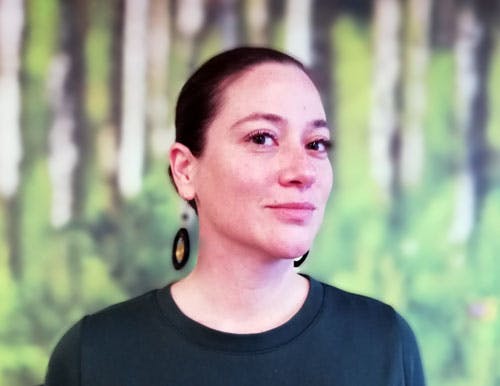

Topic: Strategic communications
Melis Arı-Gürhanlı, Finland
How does the topic relate to Melis’ experience?
Since 2011, Melis has been working with immigrants in Finland and has held different positions within mostly migrant led NGOs. She has gained experience in project management and organizational management, grassroots organizing, advocacy work, working with volunteers and activists, and working with politicians and the media.
Here are a few examples of successful campaigns and actions she has run:
-political participation of immigrants (2015)
-zero tolerance to shady housing -that immigrants are subjected to (2017)
-legal right to registering more than one mother tongue (2019)
-the effects of COVID-19 pandemic to mental wellbeing of immigrants (2020).
What can she offer participants on the topic?
Melis sees community organising and communications, not to mention alliance building, as core strategies of the work she has done and the fight she has fought against injustice. She has gathered her experience on the field and learned mostly by doing. If you want to work with her over the coming weeks she will first listen and then ask you questions -with all
good intentions - in order to map your strengths and your focus.
If you want to map a strategy for your organisation to reach out to communities, to find and be able to work with key people, to sustain a healthy relation with your base and to support the work of volunteers and keep the motivation up, she is ready to share her insight with you.
Why is this topic important?
After all, without your base, you cannot fight. Without a clear strategy, you cannot proceed. Without communications, you do not exist.
How would her colleagues describe her?
Melis’ colleagues describe her as straightforward and full of ideas. Her strength is in connecting people, connecting causes, and connecting actors. And if Melis is in the room the discussion will not be boring – unless it is very serious 😜


Topic: Campaigns
Thomas Huddleston, Belgium
How does the topic relate to Thomas’ experience?
Tom Huddleston, Research Director at Migration Policy Group, has worked for 15 years on advocacy European migration and asylum NGOs. For the past 5 years, he has been working with these and migrant-led organisations on supporting campaigns.
MPG's recent campaigns have targeted both immigrants and strategic segments of society. For example, our 2018 European Citizens Initiative "We are a Welcoming Europe" was the first official European petition on migration. Our 2018 VoteBrussels campaign trained 100 volunteers who registered 8,500 immigrants to vote. Our 2019 VoteEuropa campaign reached 40 million views among young, diverse voters in the European Parliament elections. Our ReSOMA project against the criminalisation of solidarity coordinated strategic research reports, protests, editorials and strategic advocacy actions.
MPG's recent campaigns have targeted both immigrants and strategic segments of society. For example, our 2018 European Citizens Initiative "We are a Welcoming Europe" was the first official European petition on migration. Our 2018 VoteBrussels campaign trained 100 volunteers who registered 8,500 immigrants to vote. Our 2019 VoteEuropa campaign reached 40 million views among young, diverse voters in the European Parliament elections. Our ReSOMA project against the criminalisation of solidarity coordinated strategic research reports, protests, editorials and strategic advocacy actions.
What can he offer participants on the topic?
If you know what specific policy or action that you want to target, then Thomas can help you to think about how to set up your campaign: how to decide on your action and design a meaningful call for action, how to target your public, how to set realistic expectations and timelines and how to work with partners and volunteers.
Why is this topic important?
Why campaigns? Conferences, meetings and media are usually not enough to convince policymakers to change their minds and policies. Campaigns are important because, sometimes, we need to mobilise ordinary people to show that members of the public also demand change! Campaigns are also great ways to improve your public visibility, support and volunteers.
How would his colleagues describe him?
His colleagues describe him as a solid communicator and quick thinker bursting with energy and new ideas.
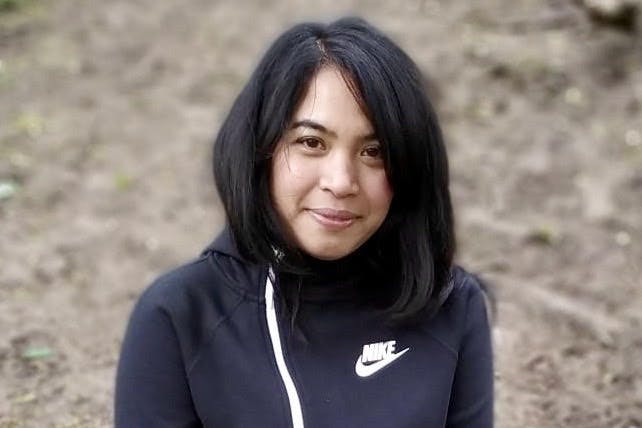

Topic: Fight against racism
Sara Djahim, Germany
How does the topic relate to Sara’s experience?
Sara Djahim is a consultant for Korientation, a network for Asian-German perspectives and a migrant organization aiming to strengthen the representation of Asian Germans in the arts, media and politics. Her main focus there is advocacy work; she is, for example, part of an NGO monitoring group that critically supports the newly appointed governmental cabinet against right wing extremism and racism.
What can she offer participants on the topic?
Previously, she has worked for migrant organizations on the federal level, where she was involved with organizational development, community building and the management of anti-racism projects that sought to connect and empower migrant organizations.
Why is this topic important?
She strongly believes that, although it is very important to liaise with policy makers and to try to change the narratives around migration and belonging, that empowerment and building cross-community networks are the base for real change.
How would her colleagues describe her?
Sara is described by her colleagues as someone who is trustworthy and listens deeply. She would like to use this opportunity for us all to come together and talk about how to organize cross-community solidarity in the fight against racism.


Topic: Fundraising
Valeria Aquino, Ireland
How does the topic relate to Valeria’s experience?
Valéria is originally from Brazil, holds a Bachelor of Social Work from the Pontifical Catholic University of Campinas and has over 15 years’ experience working for organisations in the private, public and non-profit sector. Currently, she is the Integration Officer for the Immigrant Council of Ireland, working in projects to support the successful integration of migrants, such as the Anti-Racism Support Service, providing support to victims of racism and discrimination, and the "Diversity is Good for Business" program working towards more diverse and inclusive workplaces. She is also the Chairwoman at AMBI (Association of Brazilian Families in Ireland) a 10-year-old organization working on supporting Brazilians living in Ireland, where she is responsible for institutional development and fundraising and Ambassador for the Protect Accent Initiative, working against accent based discrimination, where she is also a member of the fundraising committee.
What can she offer participants on the topic?
Valeria has extensive experience in fundraising and outreach, and she can share her knowledge in this.


Topic: Personal Growth and Career
Teresa Buczkowska, Ireland
How does the topic relate to Teresa’s experience?
Teresa Buczkowska is a Polish migrant woman who has been living in Ireland since 2005. She works as the Integration Manager at the Immigrant Council of Ireland. Teresa has more than 10 years of experience working in the migration sector, of which 5 have been in a managerial capacity. In 2019 Teresa was appointed to the board of the Arts Council of Ireland.
Supporting diversity in leadership is an issue that Teresa has been invested in for a number of years, both in a professional and personal capacity. Teresa is a strong advocate for providing personal growth and career development plans for members of social change movements, so as to facilitate diversity in leadership. Teresa, in her role as a team leader and manager, worked with a number of early career staff providing them with career progress support. She has been providing support from a basic CV writing and a job interview tips, to mentoring and coaching.
Teresa understands the impact migration can have on career prospects. For her first 8 years in Ireland, Teresa was underemployed, working in low paid and manual jobs and unpaid internships before securing an internship with the Immigrant Council of Ireland in 2013. Within 22 months she progressed in her career from intern to team coordinator, and was eventually appointed the integration manager.
What can she offer participants on the topic?
If you are looking for a space to think about your personal growth and career development Teresa can offer a safe space for reflection. Using a semi-structured discussion as a tool for exploring your current environment, networks, work experience and aspirations, the aim will be to offer constructive feedback on your next steps.


Topic: Alliance building
Breschkai Ferhad, Germany
How does the topic relate to Breshkai’s experience?
Breschkai Ferhad is a cultural manager and has worked on the thematic fields of democracy, integration and tolerance for the past years. She established and coordinated the Neue Deutsche Organisationen (New German Organizations) and was the managing director of NeMO, the Federal Association of Migrant Networks. Focal points of her work in both organizations were the development of networks with administrations as well as cross-community alliance building.
Breschkai is also the founder of ‘gesellschaftgestalten’ ("shaping society"), a forum that aims to bring communities together, build new networks and to contribute to the discourse around migration in a meaningful way.
Why is this topic important?
In her view, alliance building, exchange and sharing (of resources, information and power) are absolutely necessary to strengthen migrant organizations.
How would her colleagues describe her?
Her colleagues describe her as an outspoken, but kind person with a strong sense of justice.


Topic: Grassroots organizing
Petra Falcon, USA
How does the topic relate to Petra’s experience?
Petra Falcon is Executive Director of Promise Arizona (PAZ), which received the 2017 Affiliate Award for Advocacy from UnidosUS (formerly NCLR). Founded in 2010 (after a 103-day vigil against SB1070), PAZ is training and empowering a new generation of leaders in a new Arizona where anyone can achieve their full potential. A veteran activist, Falcon is a fourth-generation Arizonan. Her organizing career spans more than 25 years. Since its creation, PAZ has registered tens of thousands of new voters, helped hundreds acquire citizenship or legal status, including DACA, and launched the careers of community leaders across the country.
Why is this topic important?
A recipient of Mexico's prestigious Ohtli Award, Falcon lives by the philosophy that effective organizing builds leadership and capacity across diverse communities.
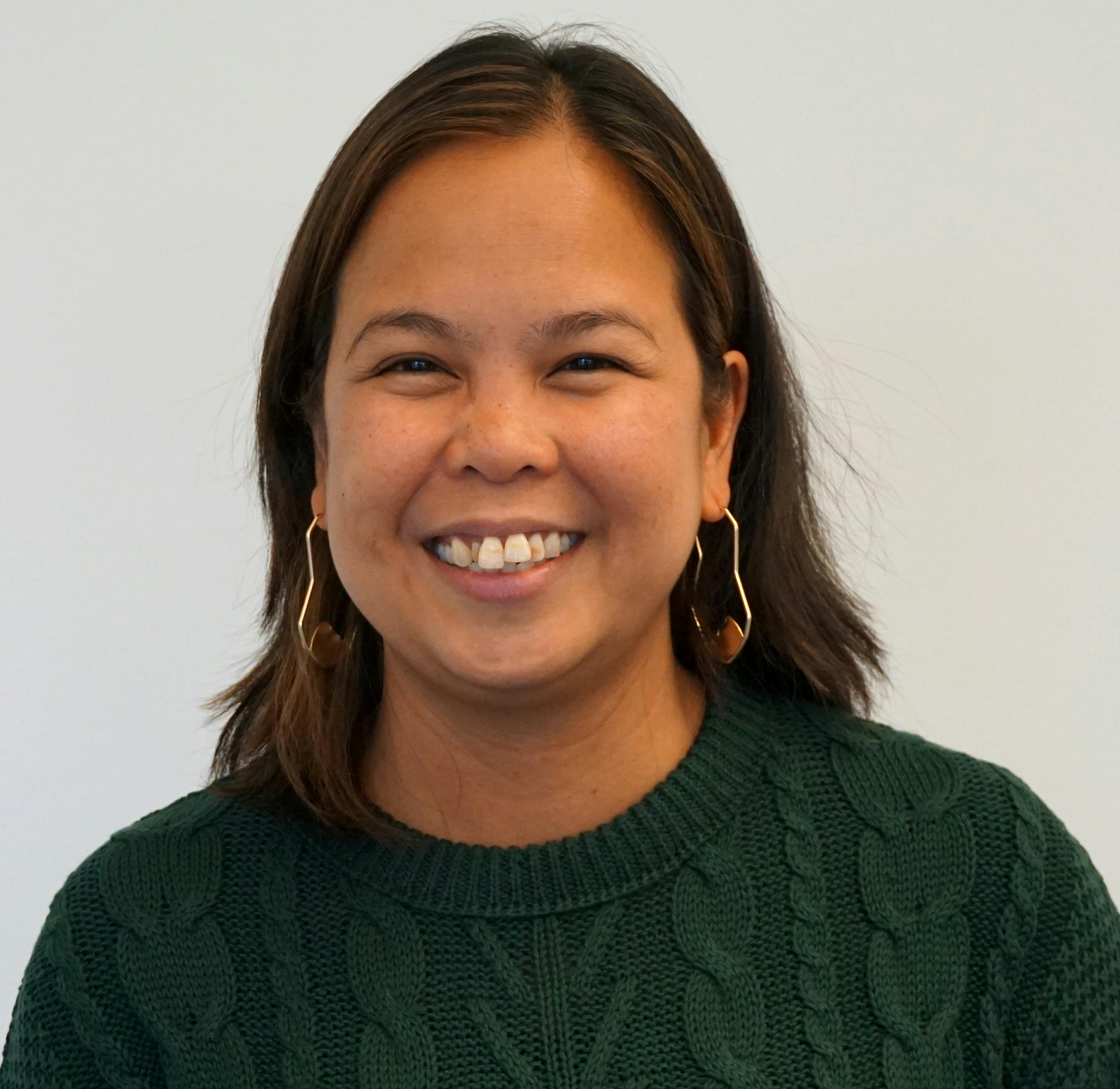

Topic: Community and self-care
Meg Sakilayan-Latvala, Finland
How does the topic relate to Meg’s experience?
Meg is a social psychologist who believes in the power of human connections. She is originally from the Philippines and she moved to Finland about 13 years ago. She currently work as a Lecturer at the Diaconia University of Applied Sciences in Finland, teaching courses on mental health and well-being, community work, social work methods and project management. Prior to this, she coordinated several EU projects that promoted and supported integration of migrant women. In these projects, she developed various trainings and workshops to support migrant women in achieving their goals and dreams, to own their power and to be more active in their respective communities
What can she offer participants on the topic?
Ideas and tools for self-care and community care. Peer support and most importantly, a listening ear to all your woes and worries about organizing and mobilizing your own communities. We can also think about strategies on how to incorporate self-care and community care in your organization’s activities.
Why is this topic important?
Her experience in community organizing made Meg realize how easy it is for us to forget about taking care of ourselves while we are taking care of others. The passion for helping others is sometimes too intense and when our community needs us, it is difficult for us to say NO. She has seen many active and passionate community organizers who had to take time off from the community because of burn-out. This is the main reason why she thinks it is important for us to take care of ourselves while we also take care of our communities.
How would her colleagues describe her?
Meg’s colleagues describe her as a solution oriented person with a love for facilitating groups. Once she commits herself to something, she does her best to act and work hard for it. She is a serial multi-tasker and she works better under pressure.
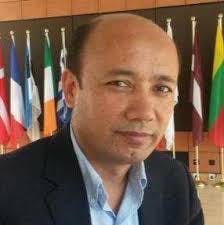

Topic: Advocacy with and for Refugees
Yonous Muhammedi, Greece
How does the topic relate to Yonous’ experience?
The Greek Forum of Refugees is an organization by refugees, for refugees and its established by Yonous Muhammadi, a passionate child protection advocate who himself arrived in Greece as an asylum seeker. Through his organization, Yonous has created a community for refugees of all nationalities where they can work together towards a stronger inclusion in their host societies and encourage active participation and recognition of refugees as contributors to an inclusive and democratic society.
What can he offer participants on the topic?
Yonous has a strong commitment to make a difference and to ensure the rights and protection of all refugees, in particular the children.
Why is this topic important?
The deficiencies in the child protection systems in Greece have led to a high risk of trafficking, exploitation and abuse of minors.
How would his colleagues describe him?
The work that Yonous does is not a choice, it is a calling. His colleagues would describe him as deeply caring and compassionate, a committed organiser and advocate and a great friend and leader.


Topic: Advocacy
Joshua Hoyt, USA
How does the topic relate to Josh’s experience?
Joshua (“Josh”) Hoyt has been a community, electoral, immigrant rights, faith, and consumer organizer for the past 44 years. He has worked as Executive Director / Senior Organizer for local, metropolitan, state-wide, and national organizations, and worked in the USA as well as South and Central America and Europe. Since 2002 Josh has worked in leadership positions in the immigrant rights movement. From 2012 to 2020 Josh was the founding Executive Director of the National Partnership for New Americans (NPNA); from 2002 to 2012 he was the Executive Director of the Illinois Coalition for Immigrant and Refugee Rights (ICIRR); and in 2010 he was a founding co-chair of the Illinois and the American Business Immigration Coalition (ABIC).
During his career Josh has worked with and learned from many of the pre- eminent organizing networks in the U.S., including the Center for Community Change, the Industrial Areas Foundation, the Gamaliel Foundation; and National People’s Action. Josh was educated at the University of Illinois and the Universidad Central de Barcelona, Spain, and
received his Master’s Degree from the University of Chicago. He has testified before Congress; spoken to such national media as the Leher News Hour, the O’Reilly Factor, the Lou Dobbs Show, the Glenn Beck Show, and the New York Times and Wall Street Journal; published opinion pieces and articles in the Chicago Tribune, Washington Post, the
Huffington Post, U.S. Catholic, and other magazines; and directed several political campaigns.
What can he offer participants on the topic?
Over the course of his career Josh has organized campaigns that have changed electoral demographics through naturalization and GOTV; caused Illinois to have among the most immigrant friendly policies in the U.S.; won healthcare for 170,000 working poor; won housing improvements for thousands of low income tenants and national policy changes; won refunds of hundreds of millions of $ from utility companies; and made police enforcement less discriminatory. Josh can offer you insight on advocacy strategies that will win battles. His areas of strength include issue campaigns; the connection of building community and electoral power; and the training and mentoring of organizers and executive directors.
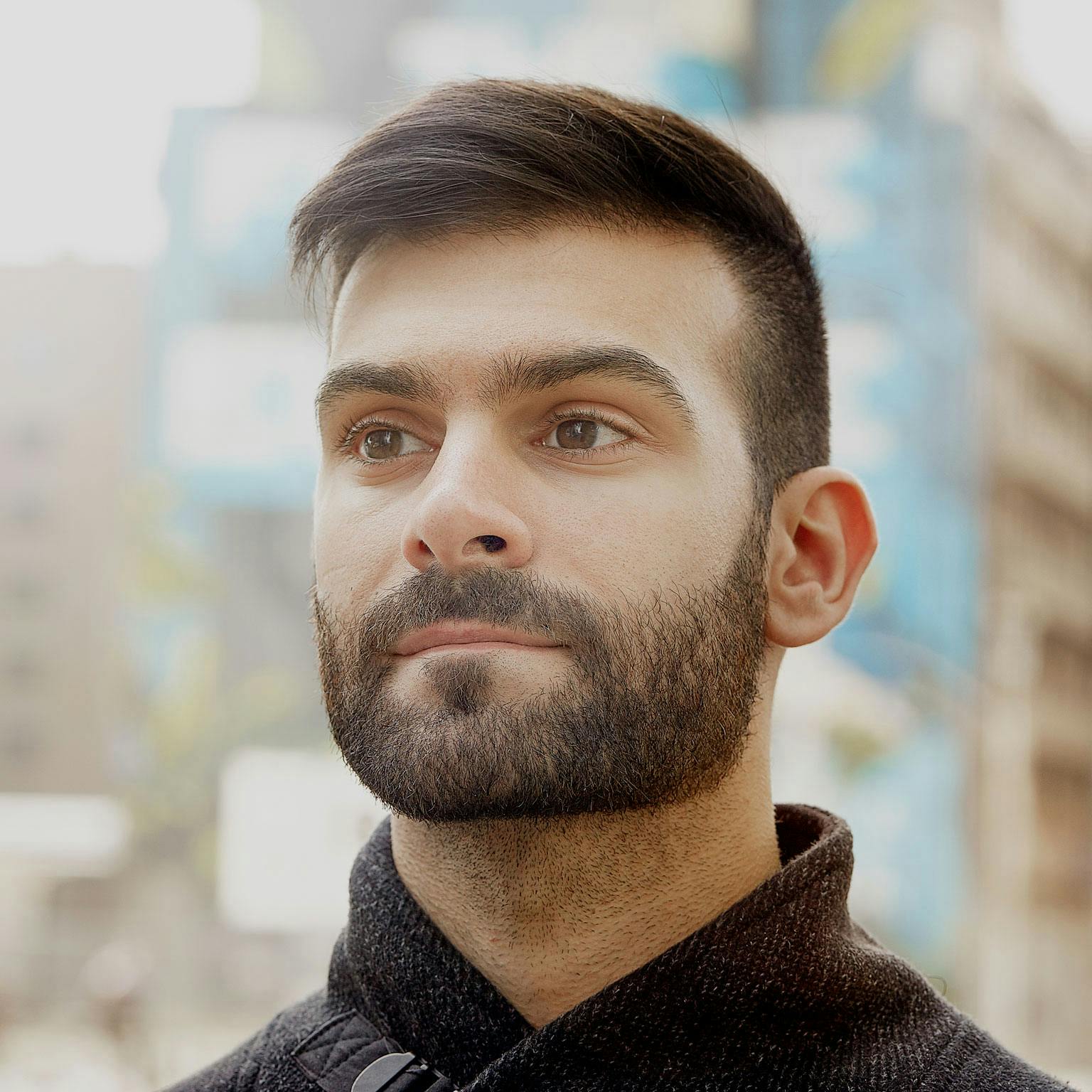

Topic: Video
Karim Hallal Peche, Belgium
How does the topic relate to Karim’s experience?
Karim Hallal Peche, TMDD Coordinator, has previously worked in the Migration Policy Group as the Video Coordinator for their VoteEuropa campaign for the European elections. He was also the video editor of Renew Europe in the European Parliament. In addition to that, he has a YouTube channel where, for two years now, he has disseminated information about the European Union.
What can he offer participants on the topic?
Videos are a really powerful tool to make your idea visible and connect with your target audience. Karim can help you with tips on how to record yourself well, to appear confident in front of the camera, and to decide on the details of your video for maximum impact.
Why is this topic important?
With the explosion of social media, and specifically platforms such as YouTube, videos are a proven and excellent way to share a message and make it go viral.
How would his colleagues describe him?
His colleagues describe him as a good communicator as well as a creative person, able to transform a heavy and tough topic into something ‘sexy’.
Want to print your doc?
This is not the way.
This is not the way.

Try clicking the ⋯ next to your doc name or using a keyboard shortcut (
CtrlP
) instead.